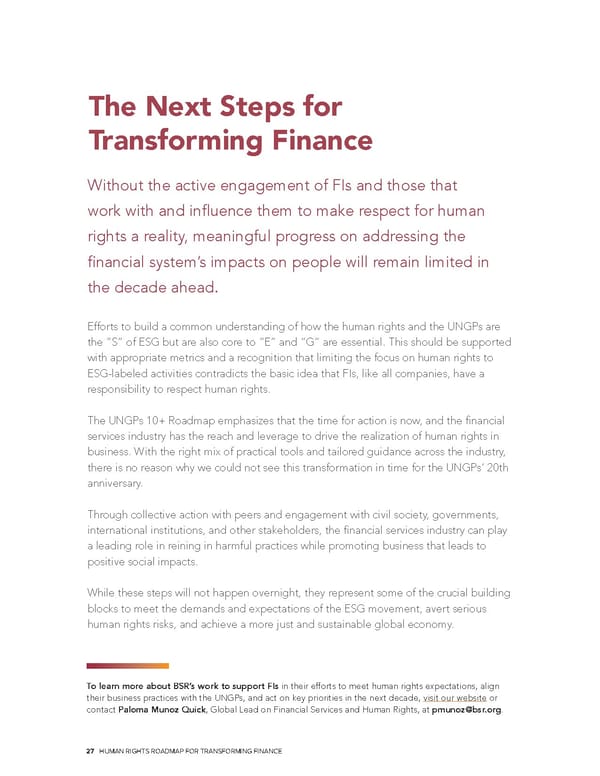The Next Steps for Transforming Finance Without the active engagement of FIs and those that work with and influence them to make respect for human rights a reality, meaningful progress on addressing the financial system’s impacts on people will remain limited in the decade ahead. Efforts to build a common understanding of how the human rights and the UNGPs are the “S” of ESG but are also core to “E” and “G” are essential. This should be supported with appropriate metrics and a recognition that limiting the focus on human rights to ESG-labeled activities contradicts the basic idea that FIs, like all companies, have a responsibility to respect human rights. The UNGPs 10+ Roadmap emphasizes that the time for action is now, and the financial services industry has the reach and leverage to drive the realization of human rights in business. With the right mix of practical tools and tailored guidance across the industry, there is no reason why we could not see this transformation in time for the UNGPs’ 20th anniversary. Through collective action with peers and engagement with civil society, governments, international institutions, and other stakeholders, the financial services industry can play a leading role in reining in harmful practices while promoting business that leads to positive social impacts. While these steps will not happen overnight, they represent some of the crucial building blocks to meet the demands and expectations of the ESG movement, avert serious human rights risks, and achieve a more just and sustainable global economy. To learn more about BSR’s work to support FIs in their efforts to meet human rights expectations, align their business practices with the UNGPs, and act on key priorities in the next decade, visit our website or contact Paloma Munoz Quick, Global Lead on Financial Services and Human Rights, at pmunoz@bsr.org. 27 HUMAN RIGHTS ROADMAP FOR TRANSFORMING FINANCE
 Human Rights Roadmap for Transforming Finance Page 26 Page 28
Human Rights Roadmap for Transforming Finance Page 26 Page 28